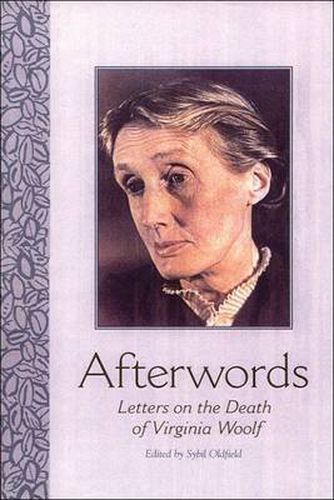Readings Newsletter
Become a Readings Member to make your shopping experience even easier.
Sign in or sign up for free!
You’re not far away from qualifying for FREE standard shipping within Australia
You’ve qualified for FREE standard shipping within Australia
The cart is loading…






On March 28, 1941, at the height of Hitler’s victories during the Second World War, Virginia Woolf filled her pockets with stones and drowned herself in the River Ouse near her home in Sussex. Since that time, Woolf’s suicide has been the subject of controversy. At the time of her death some voices in the press attacked her for showing cowardice in the face of the enemy and for setting a bad example to the general population. Just when it may seem that nothing else could be said about Virginia Woolf and the ambiguous details of her suicide, this unique volume provides an entirely fresh perspective by making available to a wide readership for the first time the letters sent to Leonard Woolf and Vanessa Bell (Virginia Woolf’s sister) in the aftermath of the event. In her introduction, editor Sybil Oldfield confronts the contemporary controversy over Woolf’s suicide note, arguing that no one who knew Woolf or her work believed that she had deserted Britain. The ensuing collection of letters supports Oldfield’s assertion. In elegant prose that rises to the stature of the occasion, these writers share remembrances of Virginia Woolf in life, comment on the quality of her work and her antifascist values, and occasionally reveal previously unknown facets of her capacity for friendship.
$9.00 standard shipping within Australia
FREE standard shipping within Australia for orders over $100.00
Express & International shipping calculated at checkout
On March 28, 1941, at the height of Hitler’s victories during the Second World War, Virginia Woolf filled her pockets with stones and drowned herself in the River Ouse near her home in Sussex. Since that time, Woolf’s suicide has been the subject of controversy. At the time of her death some voices in the press attacked her for showing cowardice in the face of the enemy and for setting a bad example to the general population. Just when it may seem that nothing else could be said about Virginia Woolf and the ambiguous details of her suicide, this unique volume provides an entirely fresh perspective by making available to a wide readership for the first time the letters sent to Leonard Woolf and Vanessa Bell (Virginia Woolf’s sister) in the aftermath of the event. In her introduction, editor Sybil Oldfield confronts the contemporary controversy over Woolf’s suicide note, arguing that no one who knew Woolf or her work believed that she had deserted Britain. The ensuing collection of letters supports Oldfield’s assertion. In elegant prose that rises to the stature of the occasion, these writers share remembrances of Virginia Woolf in life, comment on the quality of her work and her antifascist values, and occasionally reveal previously unknown facets of her capacity for friendship.